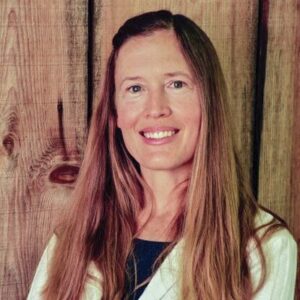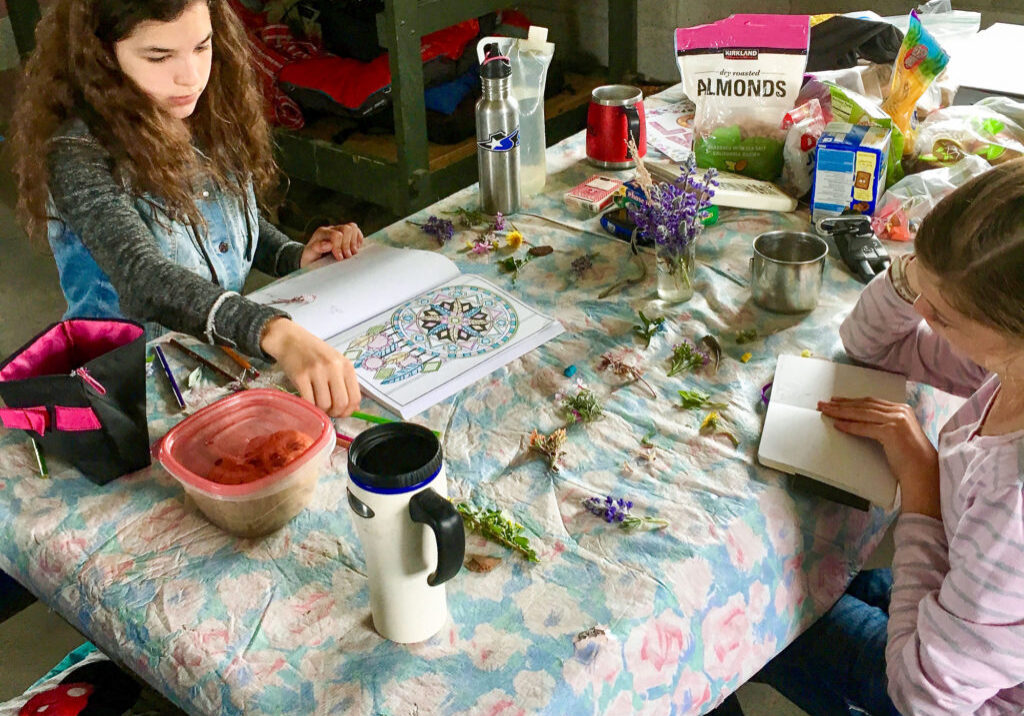I tracked down the Burke family through Instagram and set up a meeting at Reiter’s Bakery in Red Bluff. Expecting to have a quiet sit-down with Priscilla, I was surprised to also meet her husband, David, just returning from a long stint working away from home; and their three energetic daughters, Cadhla, Aoibheann and Priscilla Eibhilin. It was obvious then that their venture as fig specimen hunters, aka The Fig Hunters, is a family affair.
“We like to call our daughters free-range – they have energy for days,” Priscilla shared with a chuckle. “We want their childhood to be full of adventure while also learning firsthand where food comes from.” When they are not farming pigs, poultry and produce on their homestead, they are often hunting down wild fig trees in remote areas of Tehama County. “The girls only clean up for school,” Priscilla says. “Otherwise, they pretty much live in the dirt.”
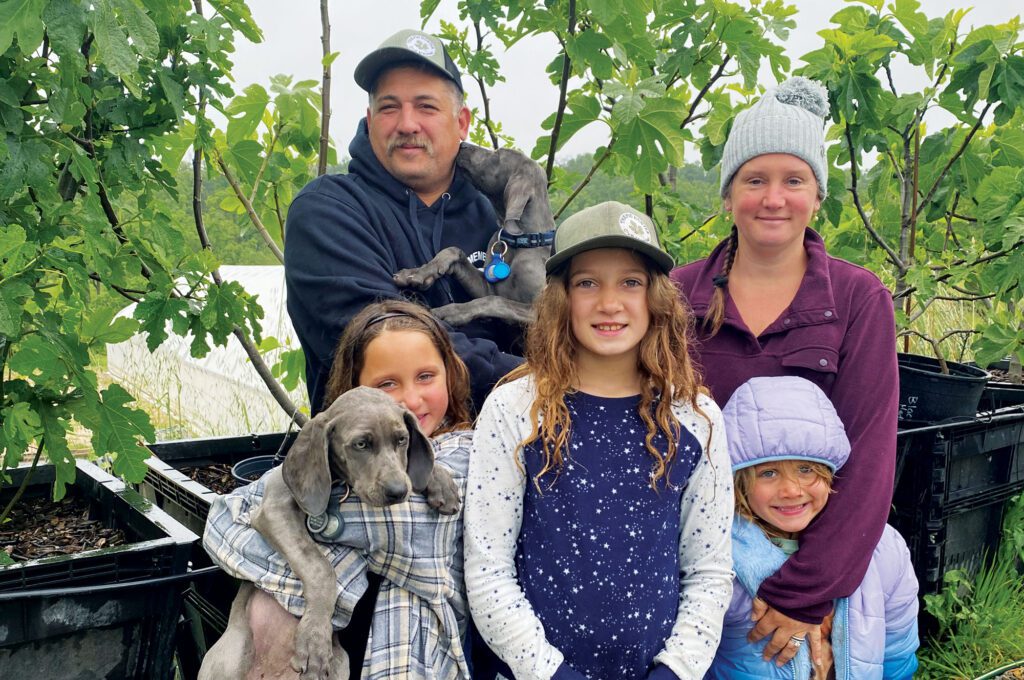
Burke family daughters Aoibheann, Cadhla and Priscilla Eibhilin, with dad David and mom Priscilla, work together to hunt for exotic figs and run Burke Family Farm and their specialty fig business. Photo by Kate Hiller.
The Fig Hunter rooted in happy childhood memories
David is proud of his other “dirty” environment which includes his work as a pile-driver, union operating engineer and casual longshoreman. You might assume that he looks forward to an easy chair and television after his long shifts, but nothing could be further from the truth. In 2018, David saw a fig tree on a construction project and it reawakened something from his childhood. Growing up on a ranch near Napa Soda Springs in Sonoma County, a massive fig tree had been central for his family and friends. The tree, spanning at least 50 feet across, served as a fort for David and his friends, complete with snacks; and its dried figs became ammunition in their pretend wars.
Seeing figs at farmers’ markets about that same time also inspired David. “I was surprised when our girls sampled the figs and actually liked them,” David says. A passion was sparked and ever since then, David unwinds from work by pulling off the freeway during his commute to search out and map fig varieties. By now he has mapped more than 500 trees.
Historic California fig legacy
David credits Leland Stanford for establishing California’s unique and widespread fig population right here in Tehama County. In 1843, General John Bidwell and Peter Lassen, with orders from General John Sutter, were exploring the Sacramento Valley as they chased down horse thieves. By the time they caught the thieves near Red Bluff, Bidwell had fallen in love with the rich soil in the Chico area and Stanford with the same in the Vina area.
Part of what became the Stanford Vina Ranch and Stanford’s vision for a vineyard is now home to the Abbey of New Clairvaux. According to the Golden Nugget Library’s Tehema County biographies, when Senator Stanford acquired the ranch, he used one portion for his famous race horses, another for his range cattle, another portion for sheep and still another for a registered Holstein-Friesian dairy herd, which contained the first advance registry Holstein ever in California. With all this stock business, Senator Stanford planted an immense vineyard of 5,000 acres, brought winemaking from France, and erected extensive brick buildings for winery purposes, while also planting English walnuts, pecans, chestnuts, oranges, lemon, grapefruit, figs, peaches, pears, prunes, apricots and almost every commercial variety of fruit or nut tree, all of which did well from the start.
David adds, “Stanford imported and established 75 varieties of figs and, with the ever-increasing number of natural hybrids, we now have at least 2,124 different fig species in California.”
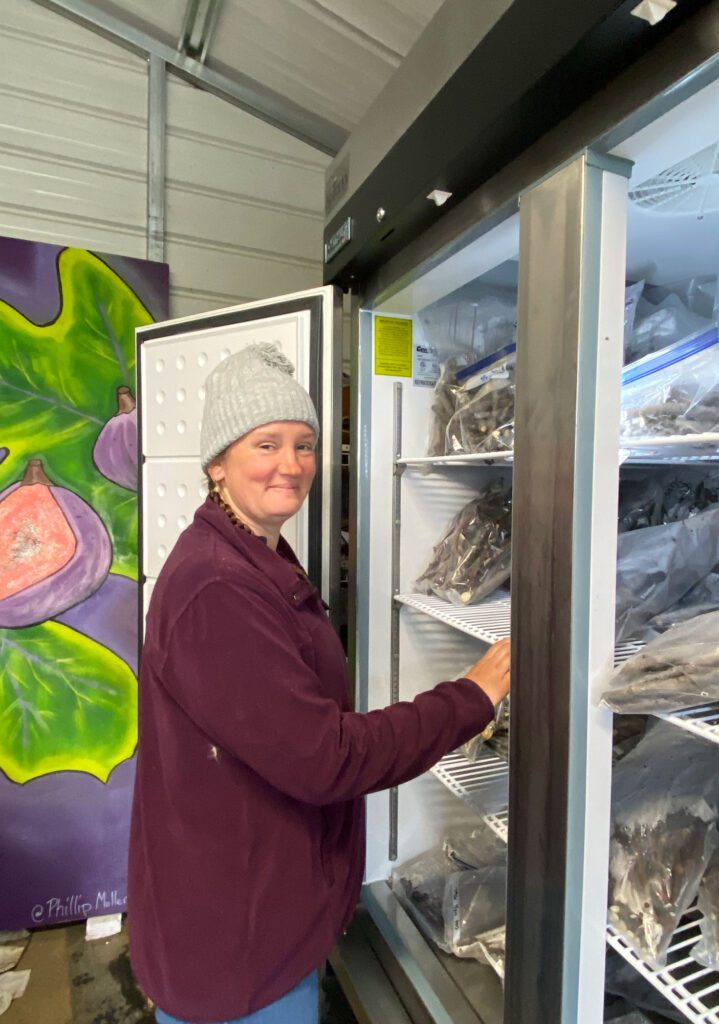
Priscilla shows her stored fig tree cuttings.
The Burkes work together to make their dreams a reality
After discovering and mapping the unique fig trees, David takes cuttings, labels them and then the family grows the treasured trees for their own California State registered Specialty Fig Nursery and Arboretum. Rare and natural-hybrid fig varieties are sold nationwide as rooted stock and cuttings are sold internationally. David says, “We are on this adventure as a family -spreading the love of growing figs and preserving the rich history of our area.”
“I dream it, Priscilla makes it happen,” David says of his wife. The Fig Hunters may have been born out of David’s childhood nostalgia, but Priscilla is the one who is keeping the dream alive. David and Priscilla’s interests merged well over the years. Priscilla was working as a family law paralegal when she decided to leave her job to be at home with the girls full time. Always a gardener, Priscilla was able to immerse herself in their family farm. As David discovers and maps fig trees, Priscilla and the girls work together with their other business, Burke Family Farms, making and selling homemade pickles, pasta sauce, pizza sauce, homemade soaps and lavender spray from produce grown on their farm. Priscilla’s education and career background prepared her for the logistics and technical side of their businesses.
One Seed at a Time brings community together
Priscilla also recently started a nonprofit One Seed at a Time to combine all the family’s aspirations by providing family-friendly and sober community events at little to no cost for participants and to support growing healthy communities. She works with partners to create more public and school garden spaces and to educate the public about growing and maintaining local plant species. Priscilla says, “The name grew from the idea that all change starts with one idea, one conversation and/or one seed.”
In March, One Seed at a Time held the first annual Seed and Scion Exchange. This free event was wildly successful with more than 1,200 people in attendance. Families went away excited for spring with their arms full of cuttings, seeds and plants. In September, The Fig Hunters will host the second annual Fig Fest on the river in Red Bluff. Last year more than 475 stopped by for good food and fun for their families. “Food is an equalizer,” David says. “Once people start talking over a meal, they will start talking about anything. You can really learn what the needs of the community are during that fellowship.”
While David’s childhood fig tree served as a gathering place, the Burke Family hopes that same symbolism will continue to inspire communities and families to plant fig trees, grow gardens and gather together around the table.
Posted in: This is Tehama
Comment Policy: All viewpoints are welcome, but comments should remain relevant. Personal attacks, profanity, and aggressive behavior are not allowed. No spam, advertising, or promoting of products/services. Please, only use your real name and limit the amount of links submitted in your comment.
You Might Also Like...
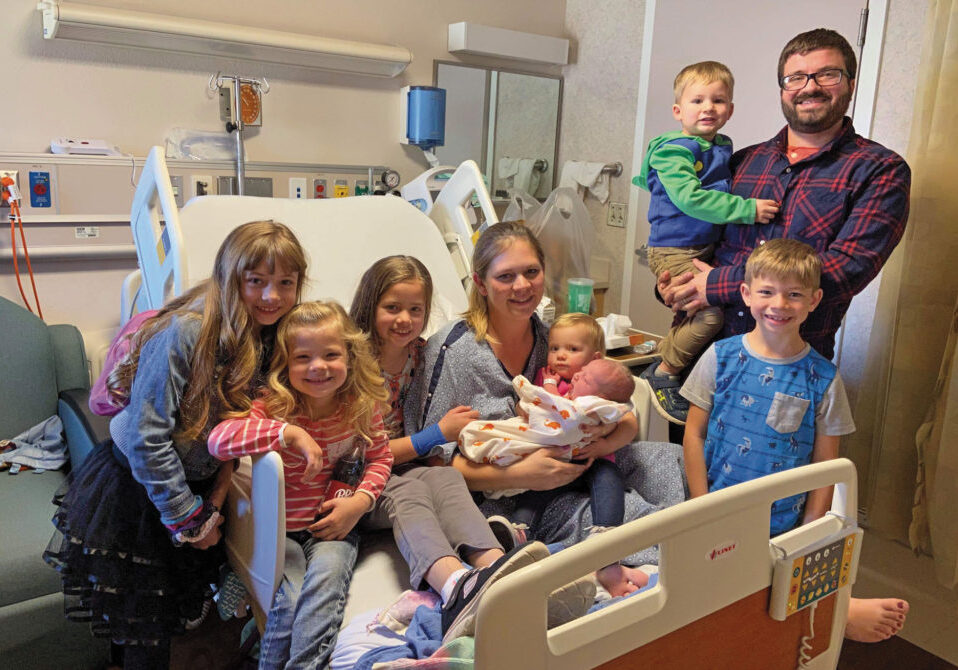
St. Elizabeth’s Midwives: This is Tehama
The Comfort and Care of Welcoming Babies with St. Elizabeth’s Midwives As St. Elizabeth Community Hospital in Red Bluff, CA, welcomes this year’s spring babies, the goal remains the same—healthy […]
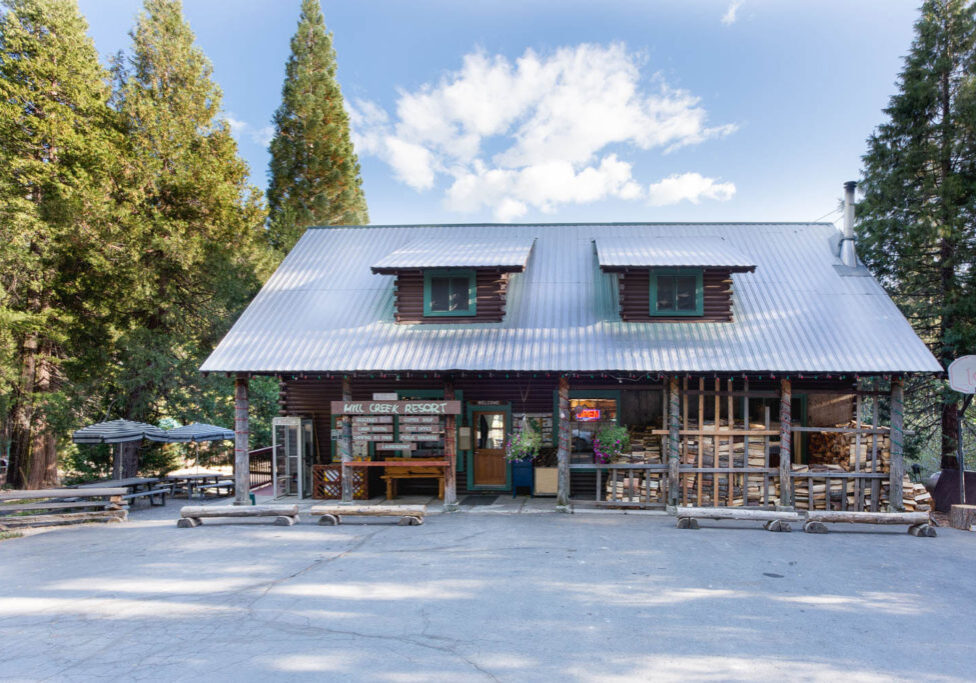
Mill Creek Resort: Nature’s Playground
The happiest place on earth Tucked away in the horseshoe bend of Highway 172, just six miles southeast of Mineral, nature’s playground awaits. Mill Creek Resort is 13 wooded acres […]
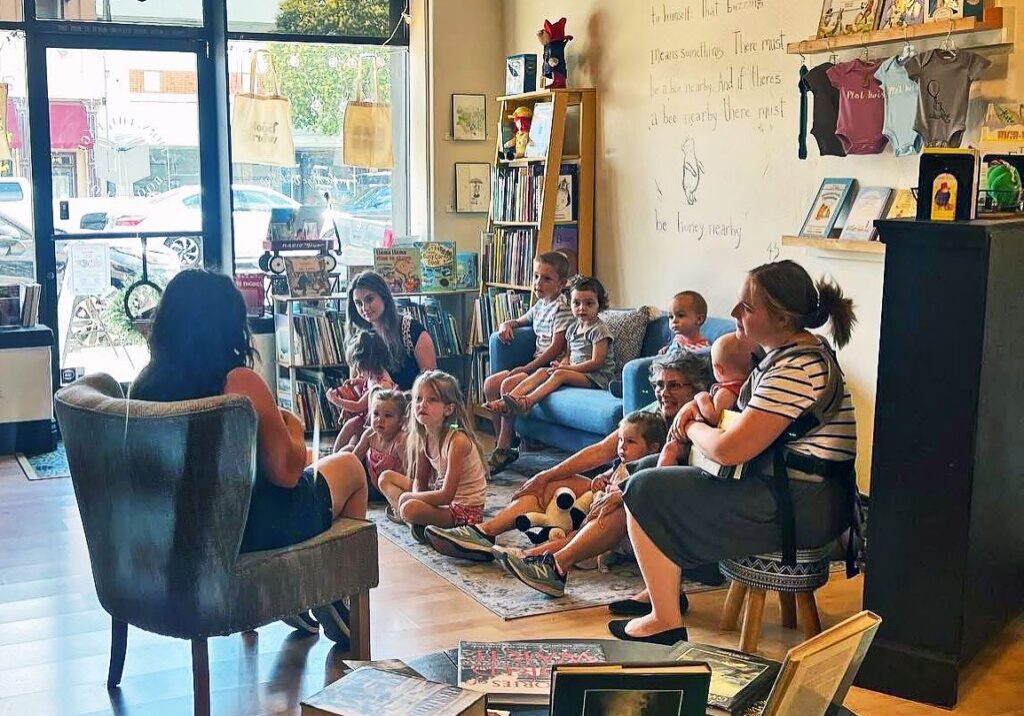
Teaching Life At Turn The Page Book Shop In Red Bluff
“Again, again, again!” How many parents have heard this plea from their children after reading a book or reciting a rhyme? This might be the only stage of a child’s […]
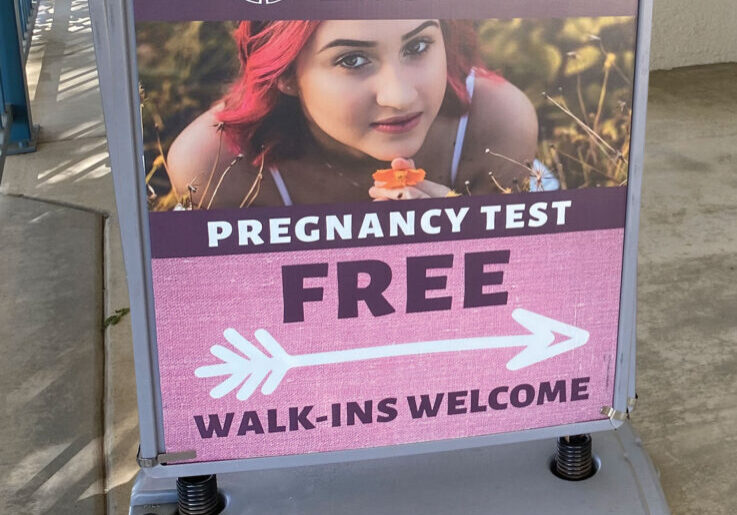
New Life and a New Heritage with Lifenet Tehama
With a new-to-them building, Lifenet Tehama is starting a new legacy as a shelter for first time moms. The Heritage House will open in January at 1008 Madison St., Red […]


